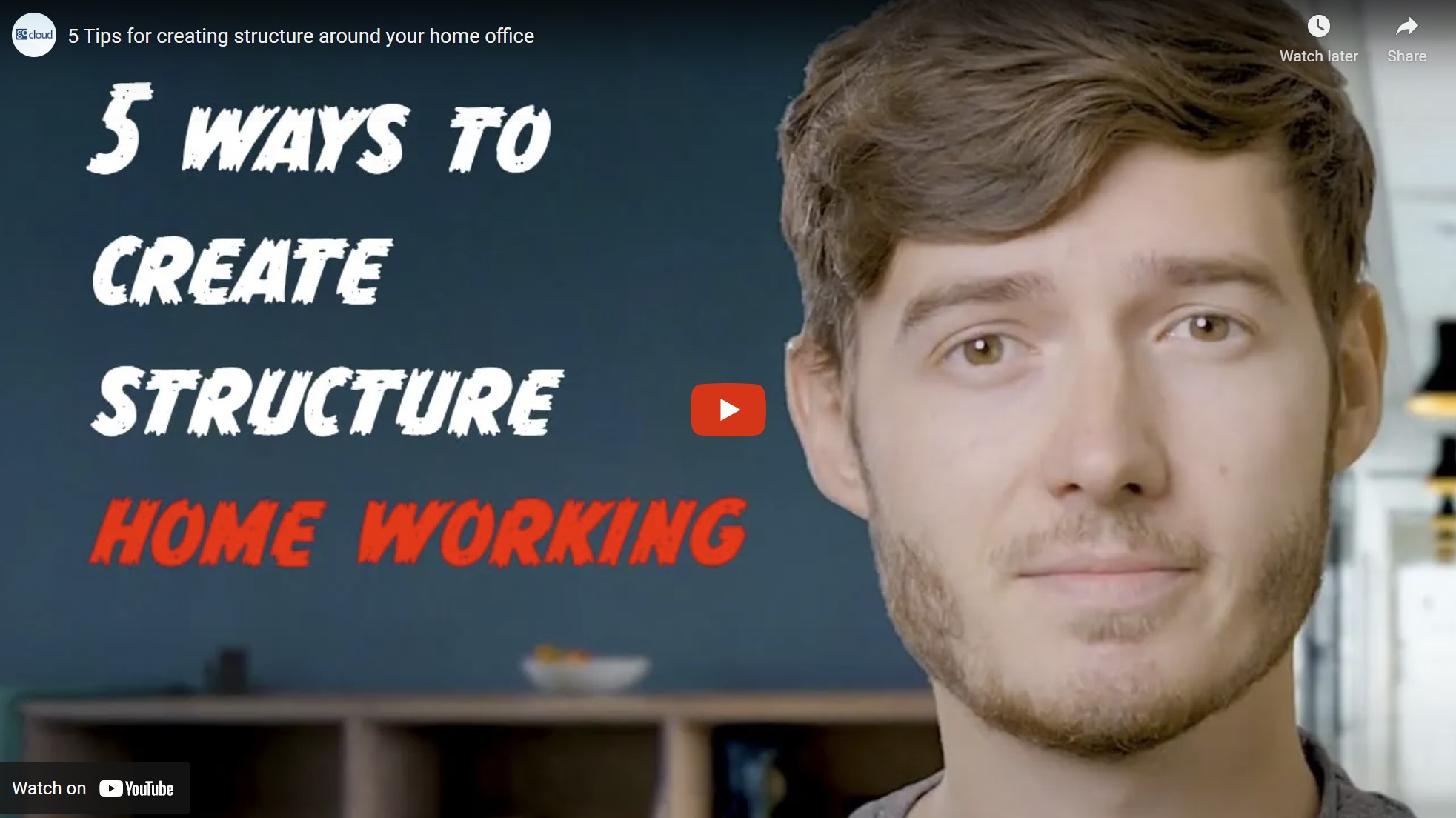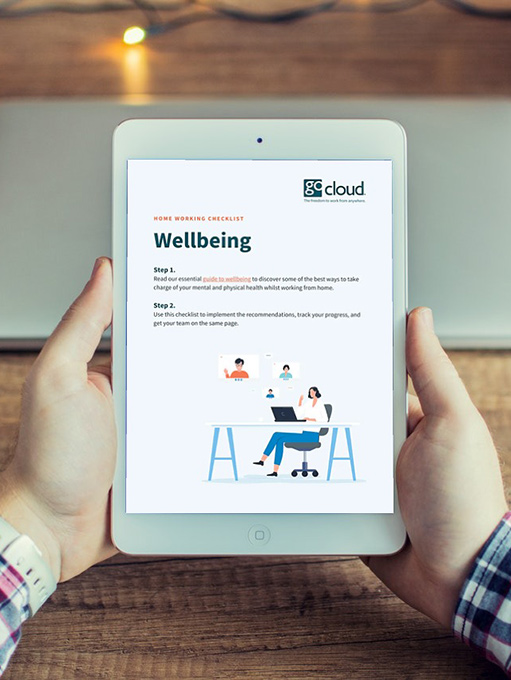
Resources
Get
Instant Quote
Straight to your inbox. No sales call.
Wellbeing
We share a few tips for creating structure in and around your home office.

Those with partners and children may find it particularly hard to adapt to home working.
All it takes is for the kids to play a bit too loudly for your productivity to take a dive, plus we've all seen what can happen when little ones burst into the room whilst you're on an important video call (although hopefully you won't be on live TV at the time).
If your family are in the house whilst you're working in your home office, you need to lay down some ground rules that are firm but fair.
These can take any form you wish depending on your role and what you have scheduled for that day.
For instance, maybe you'll usually work to an open-door policy, as a quick natter with the spouse or giving the kids a cuddle can do wonders for your wellbeing.
However, it might be that you set up specific times when they need to give you privacy because you're in a meeting or have to focus on a task, as this way they know the situation and won't accidentally get on your nerves.
Top tip: An eye-catching Do Not Disturb sign on your home office door is a very wise investment and should be used whenever you require peace and quiet.
It can be tempting to get up later when working from home, especially if you're used to a long commute. Rather than hitting the snooze button, try to rise from bed at the normal time even though your office is only a few feet away.
This helps you to retain structured hours, plus you won't find it physically and mentally impossible to get up in time on the days when you need to go into your commercial premises.
This doesn't mean you have to start working earlier.
In fact, this time can be spent in a variety of ways, such as
indulging in a proper breakfast, doing odd-jobs around the
house, catching up with the family, spending half an hour in the
garden - whatever takes your fancy, benefits your mental health
and makes your day run more smoothly.
This might be the hardest one to achieve, as working from home means even more screen time than when you're in the main office.
Simple things like asking a co-worker a question may now be done via email or instant message, whereas project updates and powwows will surely be carried out through a video conferencing platform rather than popping into a meeting room.
This means that the average home worker is on a screen for almost every minute of their working day, which can cause eye strain, headaches and what people are increasingly calling "Zoom burnout".
There are a few actions that you can put in place though, such as the 20-20-20 rule (look away from your screen for 20 seconds every 20 minutes and focus on something that's at least 20 feet away).
You can also give yourself a screenless lunch break and use that time to do things that are good for your mental health, such as taking a walk or listening to music.
Also, try replacing some emails and video chats with good old
phone calls, especially if you can use the speakerphone and give
your eyeballs a well-deserved rest.
A very fast and simple action that so many people miss is logging down all of your work hours.
This way you can clearly see how much you're working each day, which may actually be more than usual due to fewer distractions.
Whilst productivity is excellent, you don't want to exhaust
yourself, so make sure to take extra breaks if you're spending
more time than usual at your desk.
If we keep any aspect of the "new normal" on a long-term basis following the coronavirus pandemic, let's make it support bubbles.
When you and your friends agree to be there for each other on a more proactive basis, it becomes a lot more likely that you'll reach out to them.
It doesn't have to be a case of meeting in person every time, it could be chatting in any way that suits you - video platform, phone call, WhatsApp, even something as silly as sending the odd gif on Facebook Messenger to cheer each other up.
CEOs and apprentices alike will enjoy their working day more thoroughly and achieve higher levels of productivity when they take time out to have a chinwag with a friend.
No one is too busy to have a social life, so build a
collaborative support bubble (physical or virtual) and use it as
much as you need to.
We supply hosted desktops that make it super easy to work from home. To find out more, get in touch on 01482 751133 or email hello@gocloud.co.uk.
Download your free wellbeing checklist and take control of your mental and physical health whilst home working.
Wellbeing ChecklistDownload your free wellbeing checklist and take control of your mental and physical health whilst home working.
